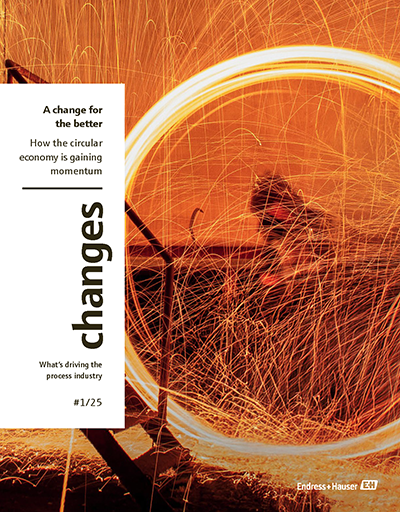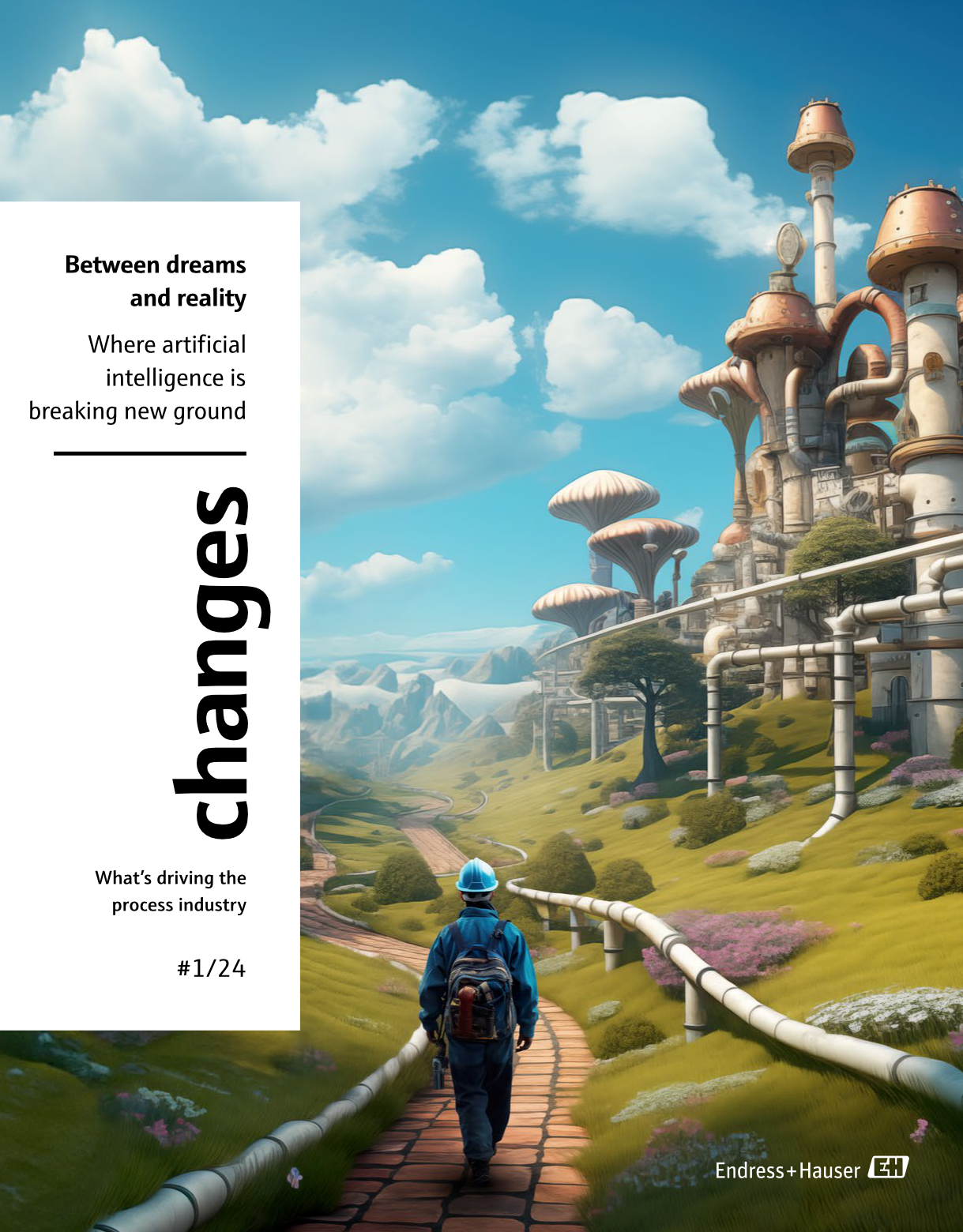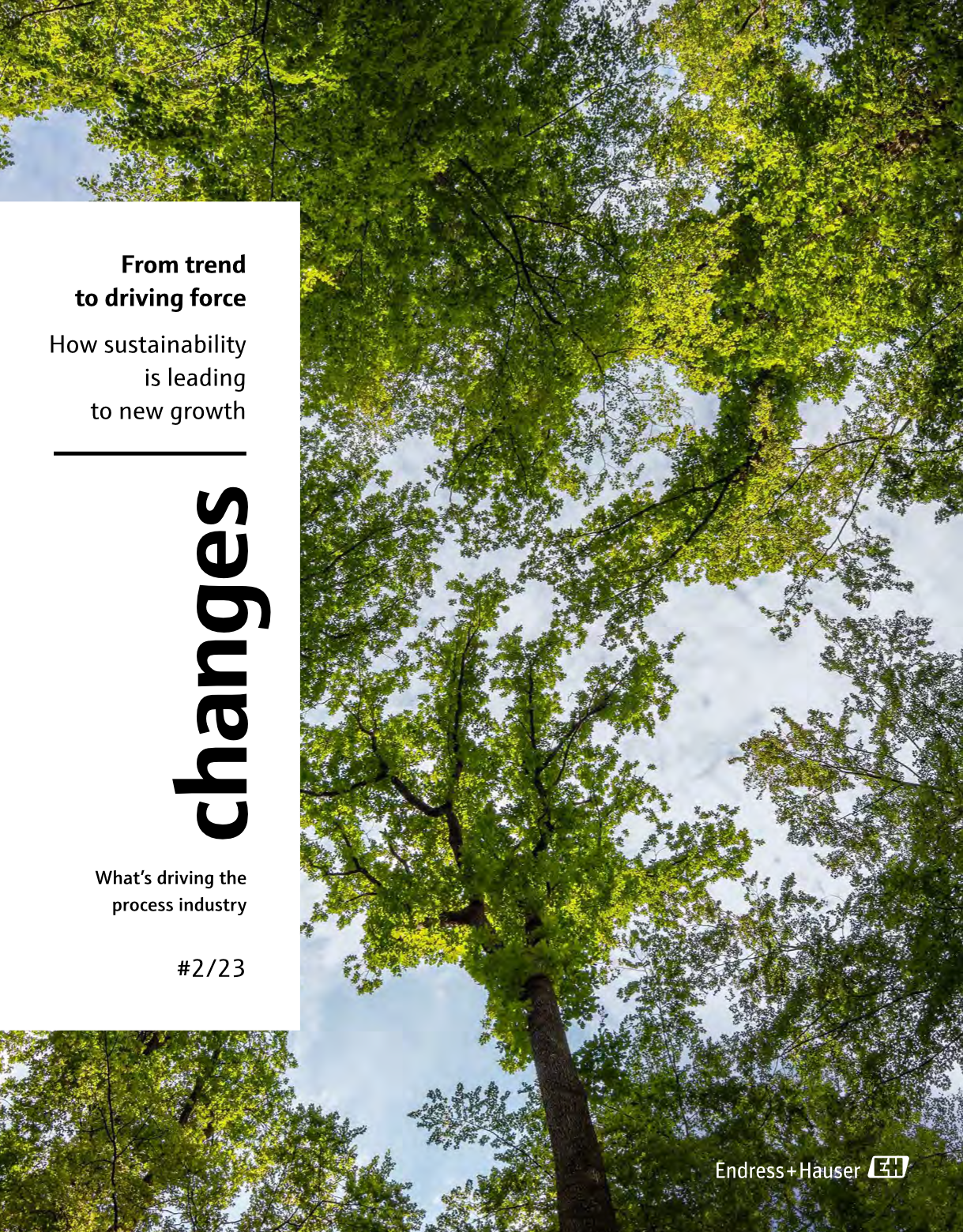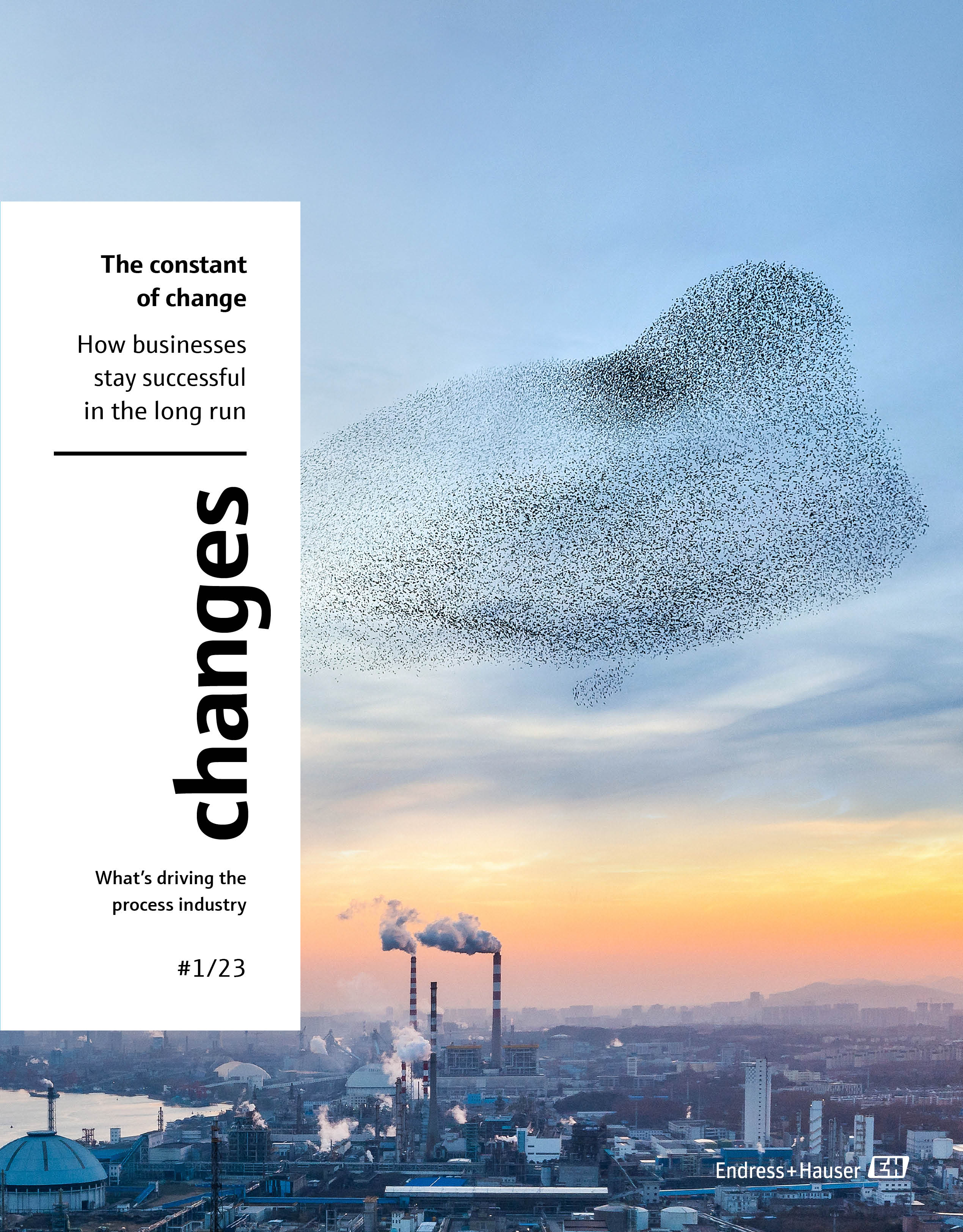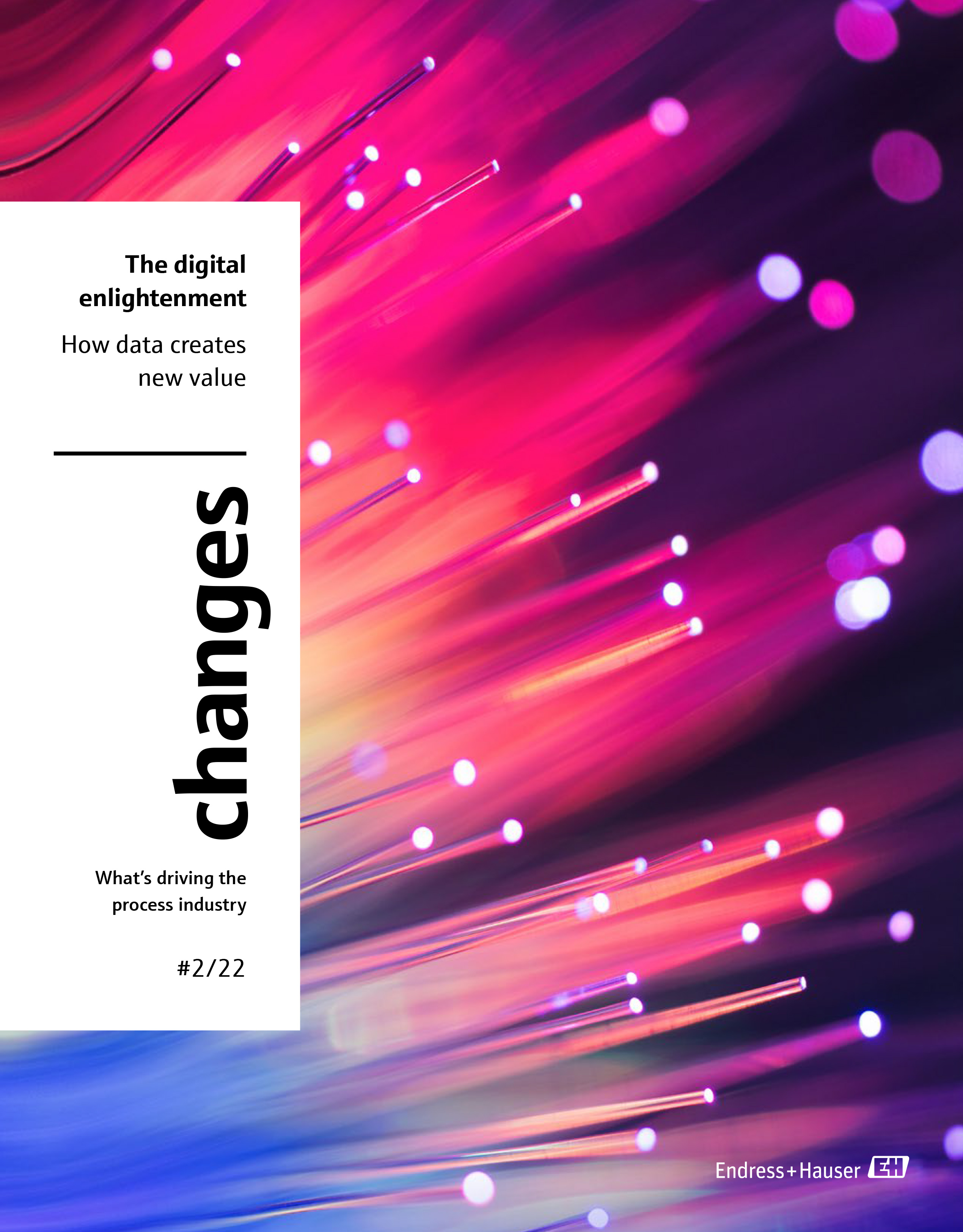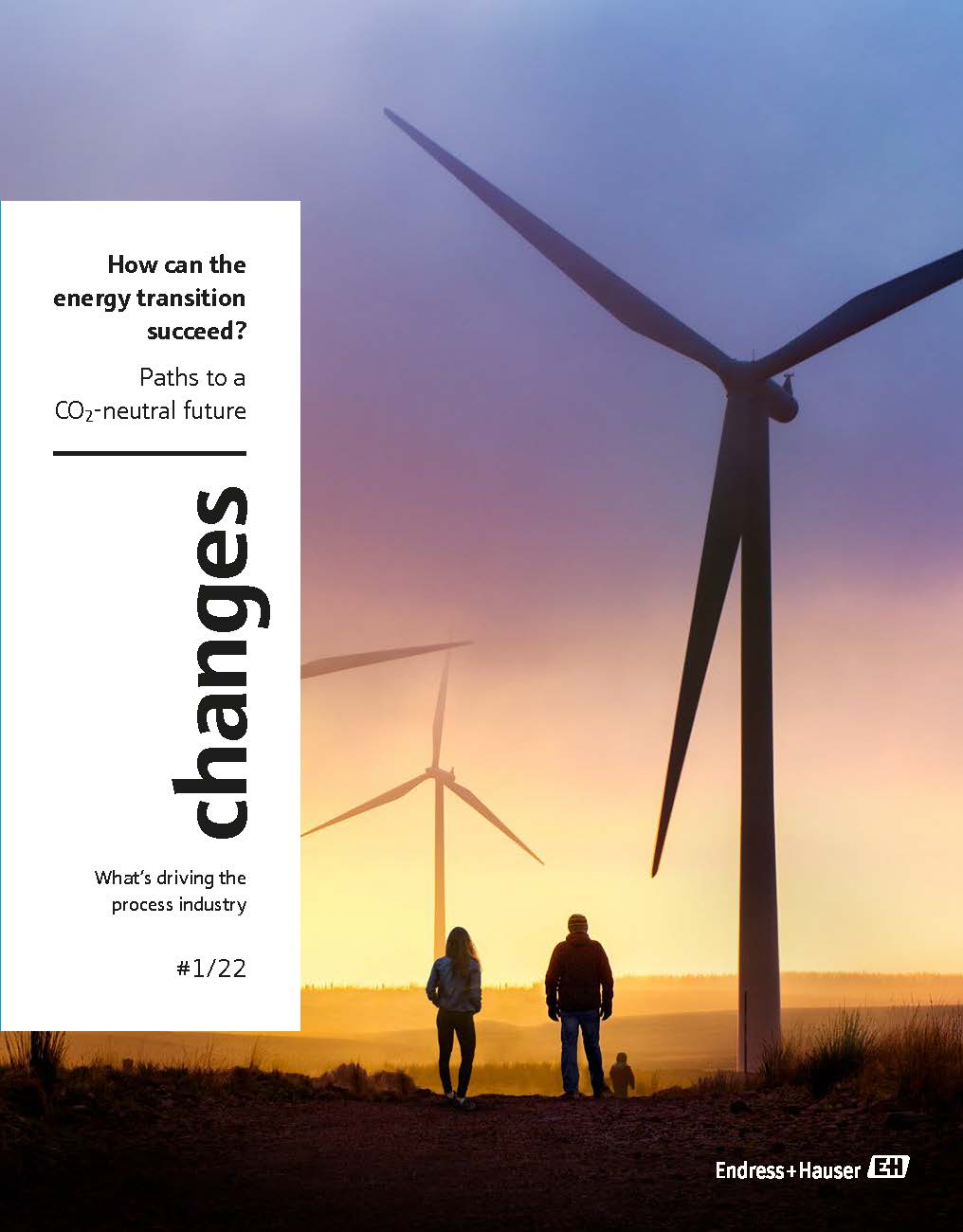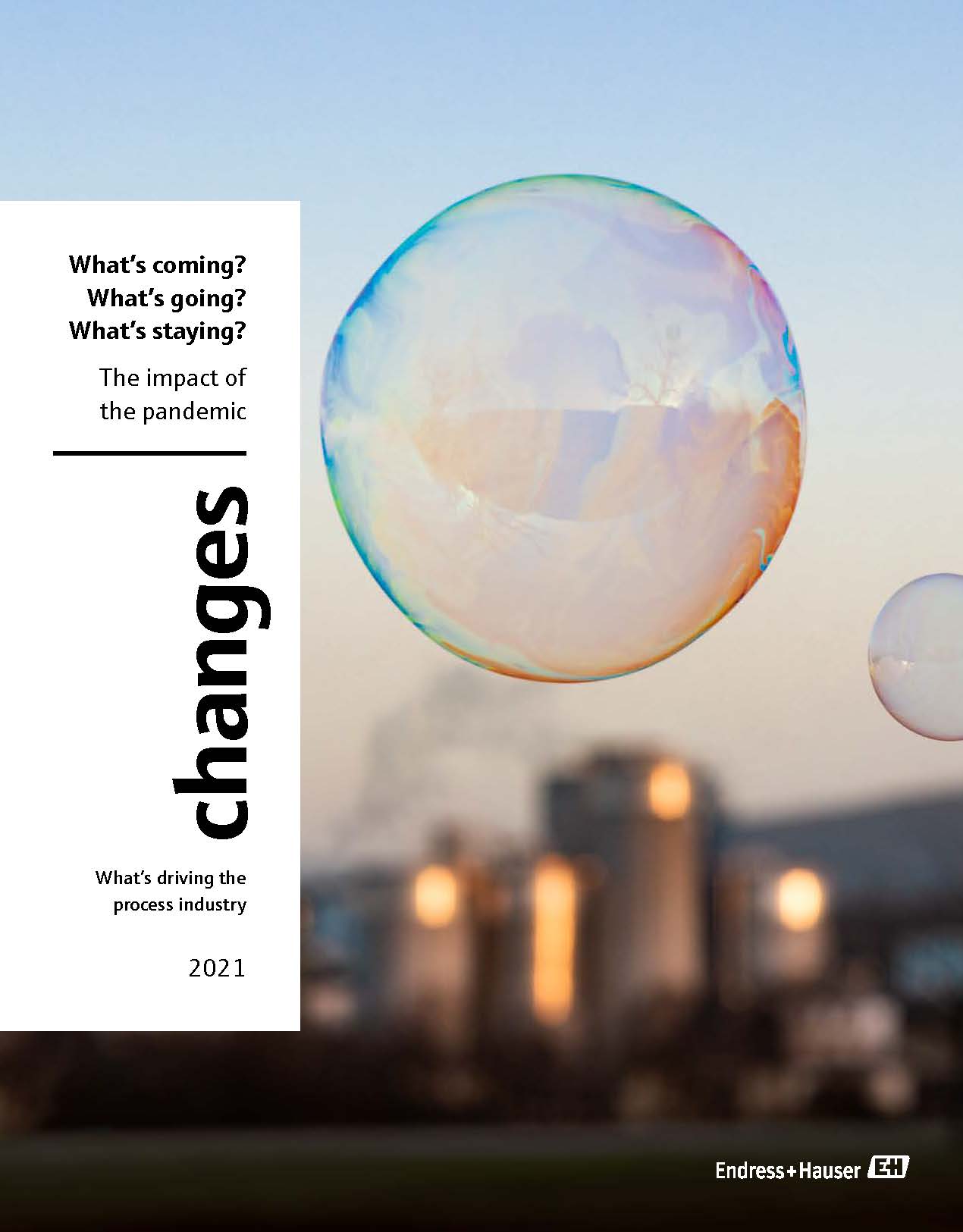An acquired taste
ChatGPT opened the floodgates: artificial intelligence has gone mainstream. AI holds huge potential, not least for the process industry. Yet how much of this is hype, and how much could become a reality?
Artificial intelligence tastes fruity, with notes of toffee, vanilla, pear and apple, and a slight hint of toasted oak casks. Such are the flavorsome hallmarks of ‘AI:01 Intelligens’, the first whisky to have AI supplement the master blender’s expertise. In 2019 Swedish distillery Mackmyra pioneered the use of AI to blend whisky from different casks so that the bottled product would appeal to the broadest possible customer tastes. AI:01 may be seen as a harbinger of what AI can accomplish for the future process industry: shorter product development times, greater production efficiency and lowered costs.
The whisky may have been somewhat of a marketing gimmick, yet it serves to highlight the possibilities of AI: rapidly evaluating myriad courses of action and process routes is essential to the fastest possible sustainability transformation of process industries like petrochemicals, life sciences and food & beverage. AI’s rising importance also ties in to the general transformation of the economy: in a future circular economy, products at the end of their life cycle will revert to being raw materials. The result will be complex systems and dependencies that classic automation approaches cannot handle. The energy transition taking place in parallel will require energy providers, industry, transportation and building management to be interconnected in order for them all to optimize harmoniously.
So do we need a completely new approach to controlling business and production processes? Is the process industry facing major AI disruption? And besides, what is artificial intelligence anyway – and how does it differ from machine learning or deep learning?
FROM FEARED ADVERSARY TO HELPFUL TOOL
There are likely as many ideas about what is meant by artificial intelligence as there are experts in the field. But there is broad consensus on the following definition: AI aims to simulate human intelligence using machines. Its effectiveness at things like data aggregation, reasoning, self-correction and creativity comes down in part to machine learning – algorithms that use historical data to predict future data. While machine learning is frequently based on human-selected parameters, deep learning models are able to automatically extract relevant parameters from the data. This makes deep learning particularly applicable to image and speech recognition, as well as natural speech processing.
Artificial intelligence has been on everyone’s lips since the public release of AI chatbot ChatGPT in November 2022. That sent a fear of missing the AI boat coursing through C-suites and boardrooms. On the political side there is the fear of artificial intelligence without checks and balances. “I believe there will be nothing more transformative to the futures of our children and grandchildren than technological advances like AI,” British prime minister Rishi Sunak said ahead of his appearance at the first international AI Safety Summit. But does that also apply to the conservative process industry, which prioritizes process reliability over innovation?
Suppliers of process automation technology are seeing mounting digitalization fatigue. That mostly comes from a lack of clearly formulated goals, unfulfilled value propositions and underestimation of the time and effort it takes to establish digital infrastructure in plants. A force for change here is NAMUR, the user association of automation technology in process industries. Its mission is to promote the benefits of digitalization, including AI. “We can’t just talk about technology and individual use cases; we must position those use cases within an overall picture,” said NAMUR vice president Michael Pelz at the annual general meeting in Neuss, Germany.
“Present-day AI is unable to control plants, and future AI probably won’t be able to either.”
Kai Dadhe,
vice president of digital process technologies at Evonik
76%
of management executives
are convinced that generative
AI can optimize production schedules and detect inefficiencies in production processes, according to a survey conducted by management consultancy KPMG.
What role might artificial intelligence play here? Not a disruptive one, that much is clear. “Present-day AI is unable to control plants, and future AI probably won’t be able to either,” says Dr Kai Dadhe, vice president of digital process technologies at Evonik. This is his summary of insights from KEEN, a three-year research project where German industrial companies and scientific institutions investigated the technical and economic potential of AI in the process industry across entire product life cycles. However, the project also showed that AI methods definitely offer added value: they are particularly effective as decision-making support for plant operators and in boosting the efficiency of engineering tasks.
“The two worlds of information technology and operations technology are merging. The vision is data-centered and software-based automation, which is where artificial intelligence can supply important information by generating new insights from an otherwise unmanageable volume of data,” says Dirk Neirinck, corporate director for business development at Endress+Hauser. Yet he thinks it unlikely that the AI revolution will come from above. That’s a view that Hans-Jürgen Huber, managing director of Endress+Hauser Digital Solutions Germany, also shares: “Much more likely is that AI will make its way into the process industry gradually, through individual applications, over time becoming another tool in the digitalization and process automation toolbox.”
Take a practical example from plant engineering: document analysis as a stage in preparing machine-readable plant topologies and smart pipeline and instrumentation plans – the basis of a real plant’s digital twin. AI can also assist in the creation of process models that in turn make process simulations more efficient. AI deployed in actual plant operations can optimize production planning, identify anomalies in production processes and derive quality parameters from sensor data. These enable further insights and findings from the process and can be used for novel approaches in process control.
Support for decision makers
By evaluating historical and current operating data, AI could also help consolidate and preserve knowledge about causal relationships in plant operations that was hitherto kept in the heads of production planners and plant operators. More broadly, decision-making support in complex systems could develop into a key discipline within artificial intelligence – not only in plant operations, but in other areas of corporate activity too. Documents such as standards, contracts and tender documents are highly amenable to analysis by language models like GPT, meaning that those models could also be put to work in sales or in engineering to home in on answers to specific questions. Consultancy firm McKinsey estimates that engineers who delegate information research to AI could increase their productivity by 10 to 20 percent.
“The revolution will not come from above. AI will make its way into the process industry gradually, through individual applications.”
Hans-Jürgen Huber,
managing director of Endress+Hauser Digital Solutions Germany
However, the development of AI applications for process automation is still in its infancy and faces many hurdles. That is because AI requires data – and in the process industry especially, this data is often unavailable, or not in the requisite quality, or is plain inaccessible. Chemical companies, for example, are already generating more data than ever before and yet that data is frequently inconsistent and lacks context – for instance about relationships within material cycles. That was another finding of the KEEN project when it considered AI’s capability to control plants: only in process states with massive data underpinning them did AI deliver reasonably useful results. Should exceptional process conditions arise, it lacks understanding of process engineering interrelationships. Hence another reason why AI applications in the process industry today are usually one-offs that neither scale readily, nor transfer from one use case to the next.
Data consistency is key
In this context, the role of process automation is changing too: its future core task will be creating conditions that produce steady and consistent data streams. Then again, there is no clarity yet about the architecture of a data- centered approach for new AI-based applications: will it be implemented in the cloud, locally in edge devices, or even embedded in the sensor electronics? Whichever scenario prevails, one thing is clear: companies seeking to tap the potential of artificial intelligence will need more than just a handful of AI specialists. As many employees as possible should be getting to grips with the basic principles, benefits and limitations of artificial intelligence. High-profile examples like ChatGPT or AI:01 could whet appetites for new possibilities in process automation.
Armin Scheuermann is a chemical engineer and trade journalist
“It is not enough to talk about technology and individual use cases; we must position those use cases within an overall picture.”
Michael Pelz,
vice president of users’ association NAMUR
Published 15.04.2024, last updated 13.05.2024.
Dive into the world of the process industry through new exciting stories every month with our «changes» newsletter!
